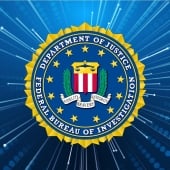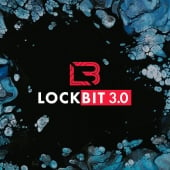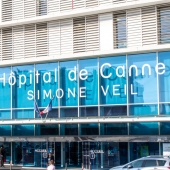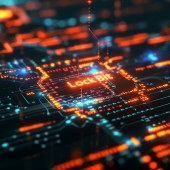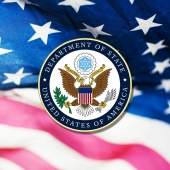-
Meet Brain Cipher — The new ransomware behind Indonesia's data center attack
The new Brain Cipher ransomware operation has begun targeting organizations worldwide, gaining media attention for a recent attack on Indonesia's temporary National Data Center.
- June 29, 2024
- 10:14 AM
 1
1
-
Infosys McCamish says LockBit stole data of 6 million people
Infosys McCamish Systems (IMS) disclosed that the LockBit ransomware attack it suffered earlier this year impacted sensitive information of more than six million individuals.
- June 28, 2024
- 02:08 PM
 2
2
-
LockBit lied: Stolen data is from a bank, not US Federal Reserve
Recently-disrupted LockBit ransomware group, in a desperate attempt to make a comeback, claimed this week that it had hit the Federal Reserve, the central bank of the United States. Except, the rumor has been quashed.
- June 26, 2024
- 02:20 PM
 6
6
-
Police arrest Conti and LockBit ransomware crypter specialist
The Ukraine cyber police have arrested a 28-year-old Russian man in Kyiv for working with Conti and LockBit ransomware operations to make their malware undetectable by antivirus software and conducting at least one attack himself.
- June 12, 2024
- 09:42 AM
 2
2
-
FBI recovers 7,000 LockBit keys, urges ransomware victims to reach out
The FBI urges past victims of LockBit ransomware attacks to come forward after revealing that it has obtained over 7,000 LockBit decryption keys that they can use to recover encrypted data for free.
- June 05, 2024
- 06:48 PM
 9
9
-
LockBit says they stole data in London Drugs ransomware attack
Today, the LockBit ransomware gang claimed they were behind the April cyberattack on Canadian pharmacy chain London Drugs and is now threatening to publish stolen data online after allegedly failed negotiations.
- May 21, 2024
- 05:23 PM
 0
0
-
The Week in Ransomware - May 17th 2024 - Mailbombing is back
This week was pretty quiet on the ransomware front, with most of the attention on the seizure of the BreachForums data theft forum. However, that does not mean there was nothing of interest released this week about ransomware.
- May 17, 2024
- 05:30 PM
 1
1
-
The Week in Ransomware - May 10th 2024 - Chipping away at LockBit
After many months of taunting law enforcement and offering a million-dollar reward to anyone who could reveal his identity, the FBI and NCA have done just that, revealing the name of LockBitSupp, the operator of the LockBit ransomware operation.
- May 10, 2024
- 06:01 PM
 0
0
-
City of Wichita breach claimed by LockBit ransomware gang
The LockBit ransomware gang has claimed responsibility for a disruptive cyberattack on the City of Wichita, which has forced the City's authorities to shut down IT systems used for online bill payment, including court fines, water bills, and public transportation.
- May 08, 2024
- 12:16 PM
 0
0
-
LockBit ransomware admin identified, sanctioned in US, UK, Australia
The FBI, UK National Crime Agency, and Europol have unveiled sweeping indictments and sanctions against the admin of the LockBit ransomware operation, with the identity of the Russian threat actor revealed for the first time.
- May 07, 2024
- 10:04 AM
 2
2
-
Lockbit's seized site comes alive to tease new police announcements
The NCA, FBI, and Europol have revived a seized LockBit ransomware data leak site to hint at new information being revealed by law enforcement this Tuesday.
- May 06, 2024
- 07:06 AM
 0
0
-
French hospital CHC-SV refuses to pay LockBit extortion demand
The Hôpital de Cannes - Simone Veil (CHC-SV) in France announced it received a ransom demand from the Lockbit 3.0 ransomware gang, saying they refuse to pay the ransom.
- May 01, 2024
- 12:38 PM
 1
1
-
LockBit ransomware affiliate gets four years in jail, to pay $860k
Russian-Canadian cybercriminal Mikhail Vasiliev has been sentenced to four years in prison by an Ontario court for his involvement in the LockBit ransomware operation.
- March 13, 2024
- 07:42 AM
 0
0
-
The Week in Ransomware - March 1st 2024 - Healthcare under siege
Ransomware attacks on healthcare over the last few months have been relentless, with numerous ransomware operations targeting hospitals and medical services, causing disruption to patient care and access to prescription drugs in the USA.
- March 01, 2024
- 03:32 PM
 0
0
-
LockBit ransomware returns to attacks with new encryptors, servers
The LockBit ransomware gang is once again conducting attacks, using updated encryptors with ransom notes linking to new servers after last week's law enforcement disruption.
- February 28, 2024
- 01:31 PM
 0
0
-
LockBit ransomware returns, restores servers after police disruption
The LockBit gang is relaunching its ransomware operation on a new infrastructure less than a week after law enforcement hacked their servers, and is threatening to focus more of their attacks on the government sector.
- February 25, 2024
- 02:41 PM
 1
1
-
LockBit ransomware gang has over $110 million in unspent bitcoin
The LockBit ransomware gang received more than $125 million in ransom payments over the past 18 months, according to the analysis of hundreds of cryptocurrency wallets associated with the operation.
- February 23, 2024
- 01:13 PM
 0
0
-
New ScreenConnect RCE flaw exploited in ransomware attacks
Attackers are exploiting a maximum severity authentication bypass vulnerability to breach unpatched ScreenConnect servers and deploy LockBit ransomware payloads on compromised networks.
- February 22, 2024
- 01:34 PM
 0
0
-
LockBit ransomware secretly building next-gen encryptor before takedown
LockBit ransomware developers were secretly building a new version of their file encrypting malware, dubbed LockBit-NG-Dev - likely a future LockBit 4.0, when law enforcement took down the cybercriminal's infrastructure earlier this week.
- February 22, 2024
- 08:51 AM
 0
0
-
US offers $15 million bounty for info on LockBit ransomware gang
The U.S. State Department is now also offering rewards of up to $15 million to anyone who can provide information about LockBit ransomware gang members and their associates.
- February 21, 2024
- 11:22 AM
 0
0

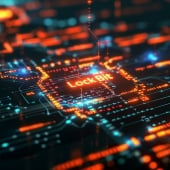
 2
2

